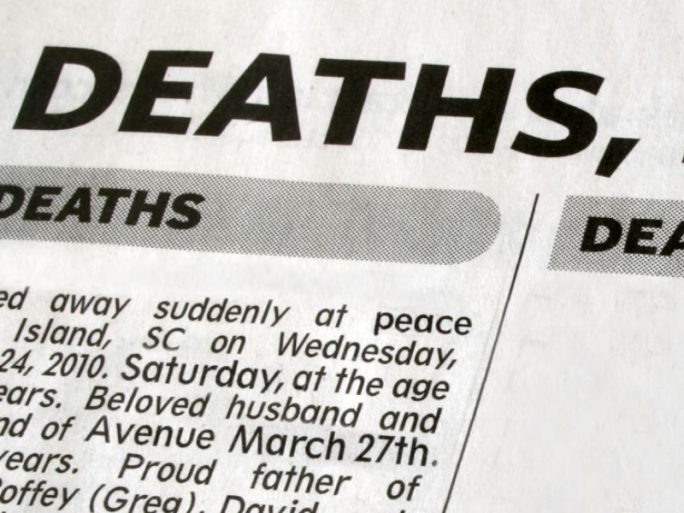Lastjourney Blog
How to Write the Perfect Obituary (with Example)


Reading Time: 4 minutes
As you are probably aware, writing an obituary is an essential component of a funeral ceremony. For some, it’s where they’ll find out about someone’s death. It gives information about a planned service for others. You’ve come to the right place if you’ve been given the duty of writing an obituary for a loved one. We’ll explain down the five sections that make up an obituary in this blog, as well as provide some obituary examples for inspiration.
Your Ultimate Guide to Writing an Obituary
It can be difficult to write an obituary, but it doesn’t have to be. If you’re stumped on how to write an obituary for a loved one, consider breaking it up into sections.
Death Announcement
The majority of individuals start an obituary with the death announcement. Use wording that you’re comfortable with when alerting the community of your loved one’s death. It’s totally understandable for some people to believe that using the word “dead” is too direct. Others, on the other hand, believe that phrases like “passed away”, “left us”, or “finished a lengthy flight with…” are too ambiguous or skirt around the truth. In any event, consult with your family and come to an agreement on how to make the revelation.
The Biographical Information
The biographical component of an obituary takes up the most spacer. Writing an obituary is frequently the most intimate part of the process. You will recap the deceased’s life in this part, highlighting significant qualities, events, and contributions they made while alive.
It’s crucial to remember that an obituary is designed to be a notice and a brief biography of the person who has passed away. Don’t feel compelled to detail every aspect of their lives. Also, refrain from talking about the deceased’s accomplishments or awards. Keep the biographical section of the obituary focused on the deceased’s attributes and the relationships they shared with others unless it was a notable achievement. A common omission in many obituaries is the deceased’s personal connections. Talk about the impact they had on others if you want to create a truly meaningful obituary. Language like “… he always made time to help his kids with their homework” or “her energy could light up a room” are examples of this.
Those Who Are Left Behind
Make sure to name surviving family members when announcing the death of a loved one. These are the people to whom others might turn for support and sympathies during this difficult time. Make a list of the survivors in order of closes relationships to the deceased: spouse, children, grandchildren, great-grandchildren, parents, and siblings.
Make sure to add their first name, their spouse’s first name in brackets, and then their last name when mentioning a relative. This is what it should look like:
“Ranjan Sangwan, Nisha Sangwan, and Palak Sangwan, are Kishore’s children.”
Unless they were close to the deceased, obituaries rarely carry the names of nieces, nephews, aunts, uncles, cousins, or in-laws. Grandchildren are sometimes listed, although more typically they are numbered (…he has 5 grandchildren).
Service Specific Information
Make sure to include vital details about the planned funeral service near the bottom of the obituary. Once the details have been confirmed, the funeral director will usually include these in the obituary. The time, date, and venue of the service, as well as the name of the officiant, are all important details to add. If you’re having visitation in addition to the service, make a note of the time, date, and place.
Messages from the Heart
Some people like to include a unique message at the end of an obituary. This could be as simple as a prayer or a heartfelt thank you. This is frequently where it is requested that people refrain from giving flowers in lieu of donations to a charitable cause.
Examples of Obituaries
It doesn’t have to be tough to write an obituary. Even if you use the template below, seeing how others have written obituaries for their loved ones might be helpful. Here are some instances of well-written obituaries.
Kishore Sangwan
After a long struggle with ALS, Kishore Sangwan, 64, of Punjabi Bagh, Delhi, passed away on November 19, 2019. Kishore was born on April 22, 1955, to Rakesh Sangwan and Neena Sangwan. He went on to work as an apprentice mechanic after graduating from Hansraj College until founding his own company in 1978.
Kishore will be remembered as a men’s guy by his family. He was the type of person who would rather fix something than buying something new. With being a firm believer in hard work, he also believed in honesty and the importance of a man’s word. He made it a point to impart in them his beliefs as well as the necessity of education. He was a loving and caring husband to his wife. Long into his battle with ALS, he made it a mission to keep the romance alive, and he kept their weekly custom of Saturday date night.
Mr. Sangwan is survived by Naina, his beloved wife of 41 years, and his children Ranjan Sangwan, Nisha Sangwan, and Palak Sangwan, as well as five grandkids.
Please join us for Chautha/Uthala, on 22nd November 2019 at Sanatam Dharma Mandir, Punjabi Bagh III (Opp. J Block) New Delhi from 10:00 a.m. to 12 noon to celebrate his life. In lieu of flowers, the family requests that you check the air in your tyres, belts, and any spark plug wires, just like he would when his children visited.
Your email address will not be published. Required fields are marked *












